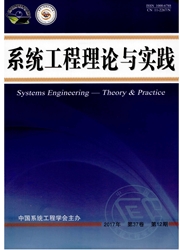

 中文摘要:
中文摘要:
考虑了一个基于MTS生产方式的制造商和一个销售多种物品的零售商构成的两层供应链,研究了由制造商原材料、产成品和零售商商品构成的三层库存系统的多物品生产和补货问题.建立三种生产.补货模型,研究了供应链上下游企业合作和多物品之间共同生产补货对供应链及其成员的成本的影响.研究了模型的最优解特性,给出了搜索算法.数值仿真实验结果表明:合作策略下多物品共同生产补货策略总是使制造商和供应链的总成本最低,非合作策略下多物品共同生产补货策略总是使零售商总成本最低.最后,给出一个延迟支付策略,实现了供应链协调.
 英文摘要:
英文摘要:
A multi-item joint replenishment problem is discussed for a two-echelon supply chain, which consists of a MTS (make to stock) manufacturer and a retailer selling multiple items. The three-echelon inventory system includes manufacture's raw material and finished product and retailer's product. Three replenishment models are formulated to study the impact of multi-echelon cooperation and multi-product joint replenishment on the total cost of the channel and the parties. The properties of the optimal solu- tions for the proposed models are then analyzed. Numerical simulations show that model JC (both the manufacturer and the retailer make the joint replenishment policy jointly) performs better in reducing the average total cost of supply chain, as well as the manufacturer, as compared to model JN (the manufacturer and the retailer make joint replenishment policy individually). But it is just reverse for the retailer. In addition, permissible delay in payment is adopted to achieve the coordination of supply chain.
 同期刊论文项目
同期刊论文项目
 同项目期刊论文
同项目期刊论文
 Coordination of cooperative advertising models in a one-manufacturer two-retailer supply chain syste
Coordination of cooperative advertising models in a one-manufacturer two-retailer supply chain syste Equilibrium analysis of distribution channel structures under power imbalance and asymmetric informa
Equilibrium analysis of distribution channel structures under power imbalance and asymmetric informa Coordinating two-period ordering and advertising policies in a dynamic market with stochastic demand
Coordinating two-period ordering and advertising policies in a dynamic market with stochastic demand Impact of private information on participators’ behaviours in a two- echelon supply chain with stock
Impact of private information on participators’ behaviours in a two- echelon supply chain with stock Supply chain coordination for newsvendor-type products with two ordering opportunities and demand in
Supply chain coordination for newsvendor-type products with two ordering opportunities and demand in Channel coordination with different competitive duopolistic retail behavior and non-linear demand fu
Channel coordination with different competitive duopolistic retail behavior and non-linear demand fu Supply chain coordination models for newsvendor-type products: Considering advertising effect and tw
Supply chain coordination models for newsvendor-type products: Considering advertising effect and tw 期刊信息
期刊信息
